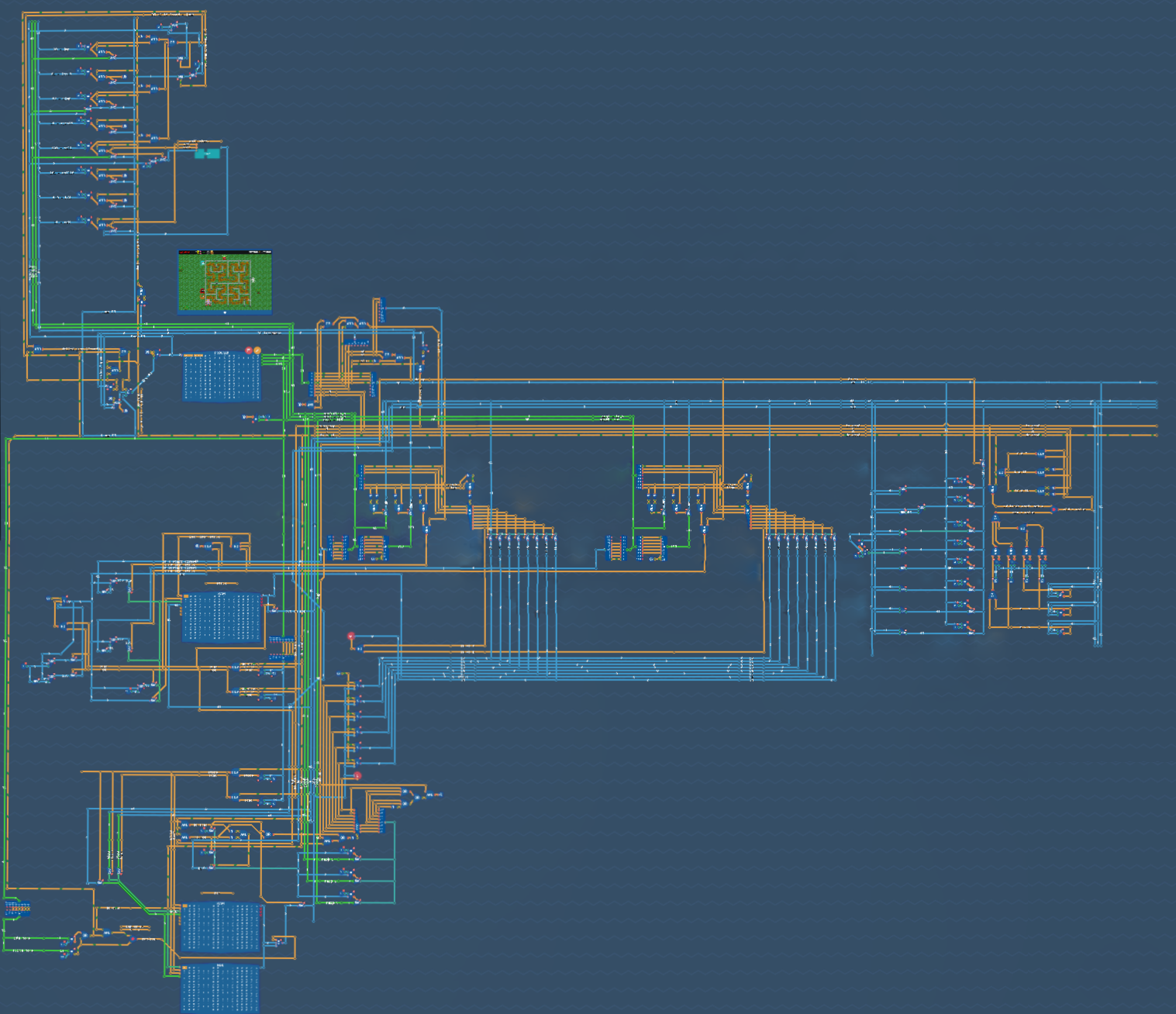Over the past couple of weeks, I’ve spent entirely longer than I probably should have falling down the rabbit hole that is the game Turing Complete.
In a nutshell, you start with basically nothing, build up simple logic gates, create memory cells and 1-bit addition, build that into 8-bit math and logic, read instructions RAM, implement loops, and function calls (in hardware!), and eventually use your very own custom built CPU to solve a few programming challenges.


